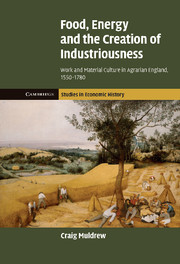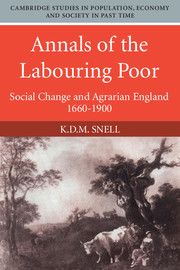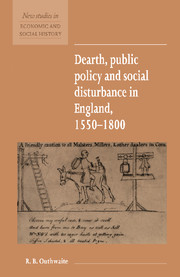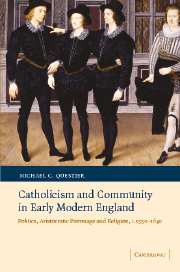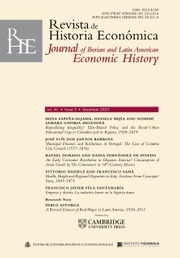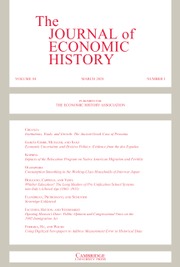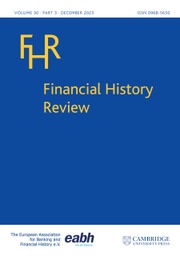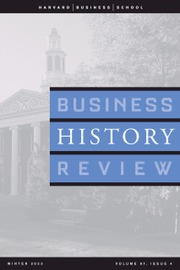Food, Energy and the Creation of Industriousness
Until the widespread harnessing of machine energy, food was the energy which fuelled the economy. In this groundbreaking 2011 study of agricultural labourers' diet and material standard of living, Craig Muldrew uses empirical research to present a much fuller account of the interrelationship between consumption, living standards and work in the early modern English economy than has previously existed. The book integrates labourers into a study of the wider economy and engages with the history of food as an energy source and its importance to working life, the social complexity of family earnings, and the concept of the 'industrious revolution'. It argues that 'industriousness' was as much the result of ideology and labour markets as labourers' household consumption. Linking this with ideas about the social order of early modern England, the author demonstrates that bread, beer and meat were the petrol of this world, and a springboard for economic change.
- Unique account of the role of food in fuelling the early modern economy
- Connects the value of labour to the economy with ideas about the social order of early modern England
- A major contribution to our understanding of standards of living in the early modern period
Reviews & endorsements
"With this volume Craig Muldrew advances our understanding of living standards, industriousness, and the working lives of men, women, and children in rural England." -Beverly Lemire, Journal of British Studies
"Food, Energy, and the Creation of Industriousness primarily concerns the diet, work, and income of English agricultural laborers and their families during the early modern period." -Carole Shammas, The Journal of Modern History
Product details
March 2011Hardback
9780521881852
374 pages
235 × 160 × 22 mm
0.73kg
3 b/w illus. 69 tables
Available
Table of Contents
- 1. Introduction
- 2. What did the poor eat?
- 3. Calories consumed by the poor
- 4. Labourers' household goods
- 5. Work and household earnings
- 6. Agricultural labour and the industrious revolution
- 7. 'Honest' and 'industrious' labourers?
- Conclusion.

